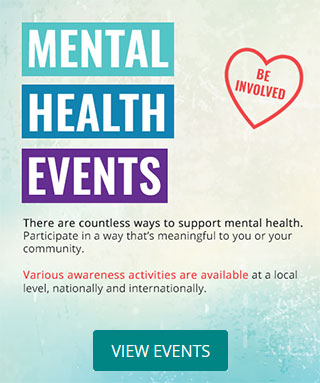MENTAL HEALTH PRACTITIONERS
Neuropsychologist

In this section is an overview of career pathways and how to access a neuropsychologist in Australia and suggest a video to view where psychologists talk careers.
Neurosychologist
Clinical neuropsychologists have advanced skills in the assessment, diagnosis and treatment planning of disorders and contexts across the lifespan. Clinical neuropsychologists are trained to understand the cognitive, emotional and behavioural effects of a wide range of brain conditions.
NEUROPSYCHOLOGISTS
Frequently asked questions (FAQs)
What is the difference between a Clinical Psychologist and Clinical Neuropsychologist?
The specialty of a Clinical Psychologist is rooted in the assessment, diagnosis and treatment of more general psychological problems and mental illness. Similarly, other psychologists do not have the extensive training that Clinical Neuropsychologists have in understanding brain-based conditions.
Only 1.3% of Australian registered psychologists have the Clinical Neuropsychology Practice Endorsement. Clinical Neuropsychologists are expert at understanding the direct and indirect effects of brain dysfunction. Learm more.
How do you become a neuropsychologist in australia?
This diagram illustrates the currently available pathways to registration as noted by the Australian Psychological Society.
After completing an APAC-accredited Masters or Doctorate, a registered psychologist must undertake a PsyBA registrar program in order to be eligible for endorsement in one of the nine PsyBA-approved areas of practice, which includes neuropsychology.
An overview of neuropsychology
Mental illness can impact how we think, concentrate and remember.
We make sense of our world through thinking. Our thought processes can be conscious, automatic or unconscious (we may not be always aware of them). Our brain helps us perceive, learn new information, and use what we have learnt on a daily basis. For instance, we understand what is happening in a film by initially attending, concentrating and perceiving in the first instance. We listen to the words, form meanings. We can later tell the story to our friend by remembering and using language. The story we tell evokes certain feelings. We may decide we did not like the film at all. In another setting, we make it to an appointment by remembering the details given by our doctor and, if necessary, reminding ourselves these details.
The way we understand and engage with the world requires a range of thinking skills, that is, cognitive abilities. Each person’s cognitive abilities are unique, and each person has a range of cognitive strengths and weaknesses.
A person with mental illness can experience specific cognitive changes. Some of these changes are obvious during a mental state decline, and improve afterwards. Other changes are more longstanding in nature. Sometimes feeling unwell such as down and out can impact our thinking, and other times, having a mental illness for several years can have a longstanding effect on cognitive abilities.
Transient cognitive difficulties: During a period of depression, one may find it more difficult to concentrate. One often suffers from low motivation and can become withdrawn, less engaged with the world. During a psychotic episode, if one is hearing voices, it may become difficult to attend to what is being said. Once symptoms improve and as one engages with the world, these difficulties are likely to lessen.
Longstanding cognitive difficulties: On the other hand, having mental illness for several years can result in a decline in thinking skills in a subgroup of patients. There is evidence that some forms of mental illness are linked to changes in the brain.
Additional cognitive difficulties: If a person is suffering from other medical, health or developmental conditions, these can further result in cognitive difficulties, and sometimes, these conditions may explain the cognitive difficulties. . Common conditions include heavy use of alcohol and/or drugs, having a neurological condition such as Parkinson’s disease or past injury involving head, or developmental disorders. Certain medications can also have an adverse impact on cognition causing drowsiness and therefore, slowing in thinking.
What is a neuropsychological assessment?
As part of managing mental illness, at times, neuropsychological assessment can be considered useful by treating psychiatrist and team. Neuropsychology is a specialist branch of psychology. A neuropsychologist is trained to evaluate brain-behaviour-emotion relationships in individuals with a range of neurological, developmental and psychiatric disorders, in order to contribute to diagnosis, management and/or monitoring of a known disease process. With regard to mental illness, the neuropsychologist evaluates cognition, mood, behaviour and personality. The information can help with understanding how the mental illness affects the person, and it can guide appropriate management and diagnosis.
The neuropsychological assessment is often best undertaken when the person’s mental state has reasonably improved. It usually takes about three hours, and involves a clinical interview and work on a range of tasks that are paper-and-pencil based or verbal in nature. The neuropsychologist then compares the task performances to the person’s age-group and other relevant demographic information. While the tasks provide important information, the neuropsychologist also utilises available medical, developmental and psychosocial history, other investigations (e.g., brain scan), recent known level of daily functioning and person’s presentation. Assessment findings are provided in writing (report form/ medical notes) as appropriate.
If you have any concerns about your thinking abilities that affect your daily functioning, you may want to consider a neuropsychological assessment. If so, please consult with your treating doctor or other health professional to discuss whether such an assessment may be useful.
How do you access a neuropsychologist?
A qualified neuropsychologist is registered under AHPRA as a psychologist and also endorsed as a neuropsychologist that recognises specialised training undertaken.
Neuropsychology and Medicare: There is no Medicare rebate for neuropsychology assessment at this stage. As a result, outpatient neuropsychology assessment is out-of-pocket and expensive given the number of hours needed for assessment and evaluation.
If you are a patient of an area mental health service in Victoria, discuss your cognitive concerns with your treating team. Some of the area mental health services provide neuropsychology services. If not, they may be able to link with a hospital neuropsychologist depending on availability and service links.
If you have a medical/neurological condition that may be the reason for your cognitive difficulties, and you are a hospital patient, discuss your concerns with your treating doctor. The hospital may have a neuropsychology service, and there may be an opportunity for outpatient appointment.
If you have a third party insurance (e.g., TAC, WorkCover), please discuss with doctor about the possibility of a neuropsychology appointment. Some third party insurance schemes may fund neuropsychology assessment, provided that the request is by a treating doctor and there is a clinical or occupational reason for it.
Resources
Psychology Board of Australia
The Psychology Board of Australia is the national board for the psychology profession that is established under the national law. Board members are appointed by Ministerial Council (comprising Ministers of the governments of each state and territory and the Commonwealth with the portfolio responsible for health).
Registration standards, codes, guidelines and policies are available from their website FAQ and fact sheets section.
Australian Psychological Society
The Australian Psychological Society is the leading association for psychologists in Australia, representing more than 24,000 members. Their website offers up to date information and training resources.
Pathways
Some possible pathways to counselling document.
With special thanks to
Many people have contributed to the development of this project through research, focus groups, advice, information and ideas. We would like to acknowledge and thank all who have contributed and supported us in our endeavor. They are:
Evrim March Neuropsychologist
Newsletters
Stay in the loop with our monthly newsletters!
If you are having thoughts of suicide, or severe self-harm please follow your crisis plan. If you do not have a crisis plan please call your treating clinician, therapist, general practitioner, one of the numbers listed below or go to the Emergency Department of the nearest hospital. In a life-threatening emergency ring 000.
Phone numbers and other supports that can be contacted in a crisis:
Life Line: 13 11 14 | www.lifeline.org.au
Sane Helpline: 1800 187 263 | www.sane.org
If you are having thoughts of suicide, or severe self-harm please follow your crisis plan. If you do not have a crisis plan please call your treating clinician, therapist, general practitioner, one of the numbers listed below or go to the Emergency Department of the nearest hospital. In a life-threatening emergency ring 000. Phone numbers and other supports that can be contacted in a crisis: Life Line: 13 11 14 | www.lifeline.org.au Sane Helpline: 1800 187 263 | www.sane.org






 The 2014 Act came into effect in July 2014. It introduced new principles to support people experiencing mental illness to make and participate in treatment decision (shared decision making) and to have their views and preferences considered and respected.
The 2014 Act came into effect in July 2014. It introduced new principles to support people experiencing mental illness to make and participate in treatment decision (shared decision making) and to have their views and preferences considered and respected.
